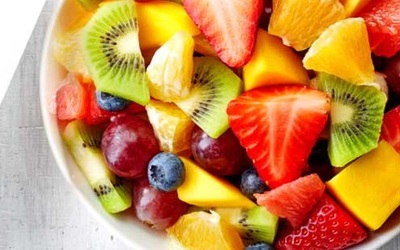While following healthy eating habits is always recommended, what a person eats assumes a greater significance while undergoing treatment. Undergoing chemotherapy puts the body under a lot of strain, and making the right choices when it comes to food can help reduce the side-effects or symptoms of chemotherapy and radiation.
[the_ad id=”6287″]
The aim is to provide enough energy to the body to heal itself from the unwanted and adverse effects of chemotherapy.
Of course, the food choice and intake must be vetted by a doctor before following it. Some useful tips and suggestions for dealing with side-effects of chemotherapy are:
1. Smaller and Frequent Meals: Eat small and regular meals throughout the day to deal with loss of appetite and constantly provide your body with the much-needed energy and calories.
2. High-fibre foods: If you are experiencing constipation, drink plenty of fluids and eat food high in fiber, such as whole grains, cereals, dried beans or peas etc. to ease the digestive system.
3. Pureed foods for mouth-sores: Eating can be a painful experience if a person has mouth sores. If there is pain in the mouth, try consuming foods that are easy to swallow such as rice, eggs, soups, custards etc. Avoid salty or spicy items and crunchy or hard foods like sauces, curries, chips, raw vegetables etc. as salt and spices can irritate the sores and cause more pain.
4. Foods for diarrhea: Opt for oatmeal, sweet potatoes and fruits minus the skin and avoid fried and greasy foods, caffeine, sugary drinks, and sweet alcohol.
5. Include more protein: In order to preserve your muscle mass and fuel your body to fight cancer, incorporate protein foods, especially plant proteins like beans, lentils and also animal proteins like chicken, turkey, eggs and dairy foods like milk, cheese, cottage cheese etc. Dairy foods are generally good sources of protein.
6. Foods to fight nausea: Natural remedies for nausea like ginger, peppermint, lemon drops etc will ease dizziness and cure queasiness in the stomach.
7. Avoid dietary supplements: The minerals, vitamins and herbal substances present in supplements might trigger various drug-nutrient interactions that limit the effectiveness of chemotherapy. It is advisable to consult the doctor before taking any such items.
8. Healthy Fats: Consume healthy oils and fats such as those present in nuts, avocado, peanut butter, almond butter, olive oil, canola oil etc.
9. Cancer-fighting foods: Food items like brown rice, Brazil nuts and oats are rich in selenium, which is a cancer-fighting mineral. Selenium helps enhance the immune system.
10. High-calorie foods: Drink fruit juices, hot chocolate and other drinks which are high in calories, and avoid low-calorie drinks like plain water, coffee and tea.
11. Carrots: A study by New Zealand Institute for Plant and Food Research found that certain plant compounds found in carrots and parsley can boost the effectiveness of cancer treatment.
During chemotherapy, the recovery rate is highly dependent on the food we eat. Therefore, it is important to follow a healthy dietary as well as lifestyle routine to ensure optimal recovery.
Source:

